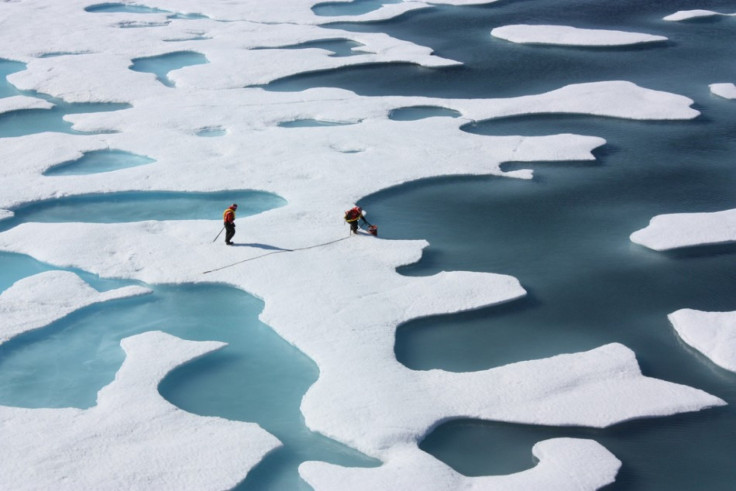An Ice-Free Arctic Could Happen Sooner Than You Expect, As Early As 2054 Due To Climate Change

A new climate simulation is predicting an ice-free Arctic by 2054. According to the researchers, the Arctic could have an ice-free summer by 2054 due to greenhouse gas emissions and that could affect everything from the climate to commercial endeavors.
The research, led by Jiping Liu, from the Department of Atmospheric and Environmental Sciences at the University at Albany, SUNY, predicts an ice-free September for the Arctic between 2054 and 2058. September is summer in the Arctic and is the period of time where sea ice cover is at its minimum. The researchers define an ice-free Arctic as having less than one million square kilometers, approximately 386,000 square miles, of ice. In September 2012, ice coverage was at 1.3 million square miles, marking a new low, reports U.S. News & World Report.
Liu used a climate model simulation using 30 different models, observing sea ice extent, to determine when an ice-free Arctic would become a reality. The researchers developed a high-emission scenario and a moderate-emission scenario to predict when sea ice levels will drop below 1.7 square kilometers and one million square kilometers.
Under the high-emission scenario, the sea ice extent will dip below 1.7 square kilometers sometime in the mid 2040’s while the Arctic will have an ice-free summer between 2054 and 2058. The moderate-emission scenario has a more positive prediction as sea ice extent will drop below 1.7 square kilometers early in 2060 but will soon level off with no prediction of reaching an ice-free September.
An ice-free Arctic would affect a wide range of activity on Earth. Liu said in a statement, “An ice-free Arctic would have a significant impact on the ocean's ecosystems, biogeochemical feedback, and extreme weather and climate in the mid- and high-latitudes," he added. "It will also affect Arctic maritime and commercial activities, including shipping, transport, and energy exploration.” According to the researchers, the level of sea ice in September has decreased by around 40 percent since the late 1970’s.
Speaking to NBC News, Liu points out that by 2054 ice in the Arctic could, theoretically, be only found in small pockets and would drastically alter shipping routes as boats would no longer have to go around large masses of ice. Mark Serreze, another Artic sea ice expert speaking to NBC News, believes Liu’s study is too conservative. Serreze predicts an ice-free Arctic by the 2030’s and cites several unknown variables, such as heat transfer from the Atlantic Ocean to the Arctic, which could alter estimates.
Liu’s research was published in the Proceedings of the National Academy of Sciences.
© Copyright IBTimes 2024. All rights reserved.






















